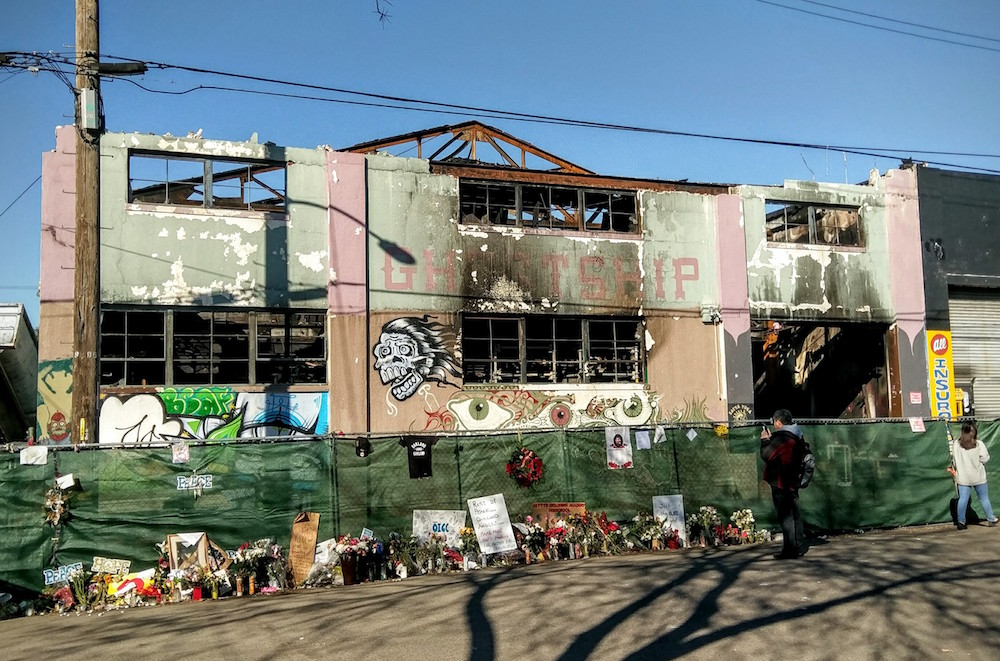Ghost Ship warehouse master tenant Derick Almena alleged on Tuesday that the owners of the building in Oakland’s Fruitvale district that was the site of a 2016 fire that killed 36 people misled him into thinking that it could be used for residential purposes.
In his second day on the witness stand in his trial on 36 counts of involuntary manslaughter for the blaze during a music party at the warehouse in the 1300 block of 31st Avenue the night of Dec. 2, 2016, Almena, 49, said he relied on representations in an email that landlord Eva Ng sent him shortly before he signed a lease for the building on Nov. 10, 2013.
Almena said Ng, who owns the building with her mother Chor and brother Kai, told him in the email that the 10,000-square-foot-building could be used for building studios, offices and residences. Almena said he didn’t learn until his preliminary hearing in December 2017 that “the building had been registered for 71 years for storage only.”
“I didn’t know that [the building had been registered for storage only] at all. I was deceived 100 percent.”
Derick Almena
However, Almena admitted under cross-examination by Alameda County prosecutor Autrey James that he didn’t read a lengthy attachment to Ng’s email that clearly explained what the building could be used for. Almena also admitted that he misspoke to investigators after he was arrested in June 2017 when he said he had read all of the lease’s documents.
Almena’s lawyer Tony Serra objected to James’ line of questioning and shouted that the prosecutor “is harassing my client!” when James approached Almena to have him review the lease documents. Prosecutors allege they Almena and Ghost Ship warehouse creative director Max Harris, 29, who faces the same charges, are criminally responsible for the fire because the people at the music party didn’t have the time or opportunity to escape the blaze since the warehouse didn’t have important safeguards, such as fire sprinklers, smoke alarms and lighted exit signs.
Prosecutors also allege that Almena and Harris violated the terms of the building’s lease, which only called for it to be used as a warehouse for an artists’ collective, by turning it into a living space for up to 25 people and hosting underground music parties there.
But defense lawyers say authorities who visited the building on multiple occasions before the fire never told Almena, Harris and the other people who lived there that they thought it was unsafe or told them to make changes to bring it up to code. Defense lawyers also allege that the fire was an act of arson that the two men couldn’t have prevented.
Almena estimated on Tuesday that 100 government officials went inside the warehouse between 2014 and the night of the fire and none of them told him that he had to make the building safer, get permits for various upgrades or issued eviction notices.
James will continue cross-examining Almena when the trial resumes on Wednesday.
